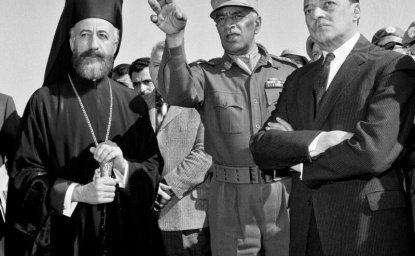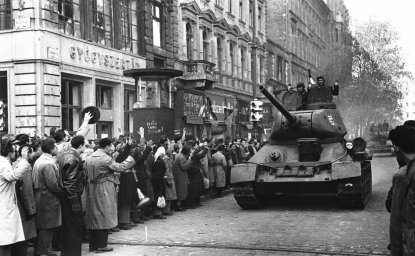Ceausescu regime used children as police spies
Source: Guardian Unlimited (UK) (7-22-06)
http://www.guardian.co.uk/international/story/0,,1826406,00.html
By Daniel McLaughlin in Budapest
The secret police of Romanian dictator Nicolae Ceausescu recruited thousands of children to spy on schoolfriends, parents and teachers, according to communist-era archives. They show that the Securitate blackmailed children across Romania into becoming informers in the late 1980s, as the whiff of liberalisation in the Soviet bloc prompted Ceausescu to tighten his grip on the country.
The files have shocked Romanians and prompted calls for an inquiry into why many of the agents who allegedly recruited the child spies continued working for the security services after Ceausescu was toppled and executed in 1989.
"In every county there were complex networks of these children, aged between 12 and 14 years old," said Cazimir Ionescu, a member of the state council created to study the Securitate archives.
Leading Romanian historian Marius Oprea unearthed a cache of such files in the Transylvanian town of Sibiu, the 2007 European Capital of Culture, which was run like a fiefdom in the 1980s by Ceausescu's son, Nicu. "In Sibiu in 1989, the Securitate recruited 830 informers and of these 170 were under 18," said Mr Oprea. "On the basis of Sibiu, you could say that perhaps 15% of the whole country's informers were children."
Historians believe the Securitate had hundreds of thousands of collaborators on its books by 1989, as Soviet power faded across eastern Europe. "What kind of information could these children give, except on family, teachers and so on?" asked Mr Oprea. "This shows that, by then, the Securitate was being used to control its own, ordinary people."
The children were expected to tell their Securitate handlers about their friends' and families' opinions on the Communist party, and whether they listened to western radio stations, had contact with foreigners or made jokes about Ceausescu.
"In the 1980s the situation in Romania made it hard to recruit anyone with appeals to patriotism, so they blackmailed people, even children, with things they had done wrong at school or with information they threatened to use against them," Mr Oprea said.
The secret police targeted intelligent and sporty children, whose participation in teams and clubs gave them access to many teachers, other children and their parents. "This was incredible abuse," Dan Voinea, the public prosecutor investigating the case, told Romanian media.
Several alleged recruiters were promoted through the ranks of the secret police after 1989, and some brought their young spies to work alongside them when they left school.
"This is a tragedy which must not only be brought to light but must also have clear consequences for the perpetrators," said Stejarel Olaru, a historian working with Mr Oprea at the state institute for studying communist crimes.
Mr Oprea found evidence of the child-spy programme soon after 1989, but found no appetite for such revelations among the ex-communists who seized power after Ceausescu's demise, and stayed quiet for 15 years. Only when reformers ousted the old guard in 2004 elections did the Securitate archive begin opening.
Access is now increasing under pressure from the EU, which Romania hopes to join in January.

Cold War International History Project
The Cold War International History Project supports the full and prompt release of historical materials by governments on all sides of the Cold War. Read more




